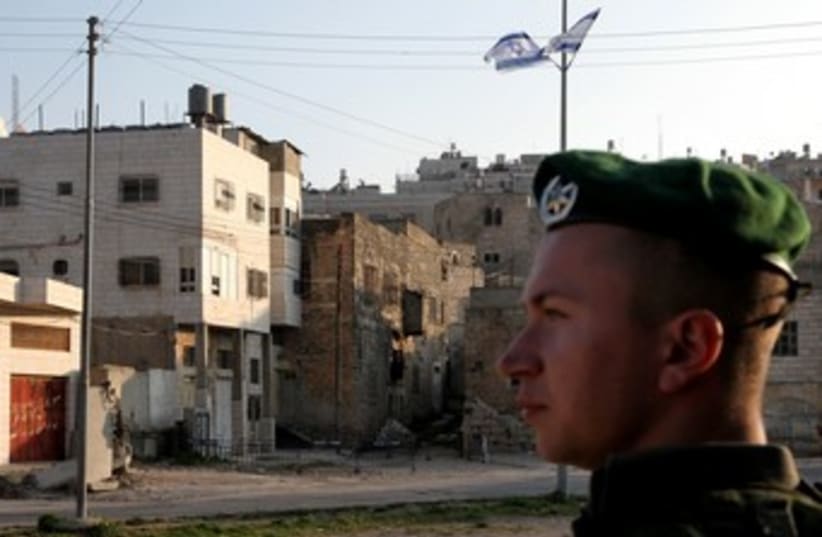Border Police evacuate settlers from Hebron home
A-G Weinstein informs PM, defense minister that Beit Hamachpela must be evacuated without delay; Barak says surprise decision is part of his responsibility to safeguard democracy, rule of law in Israel.
